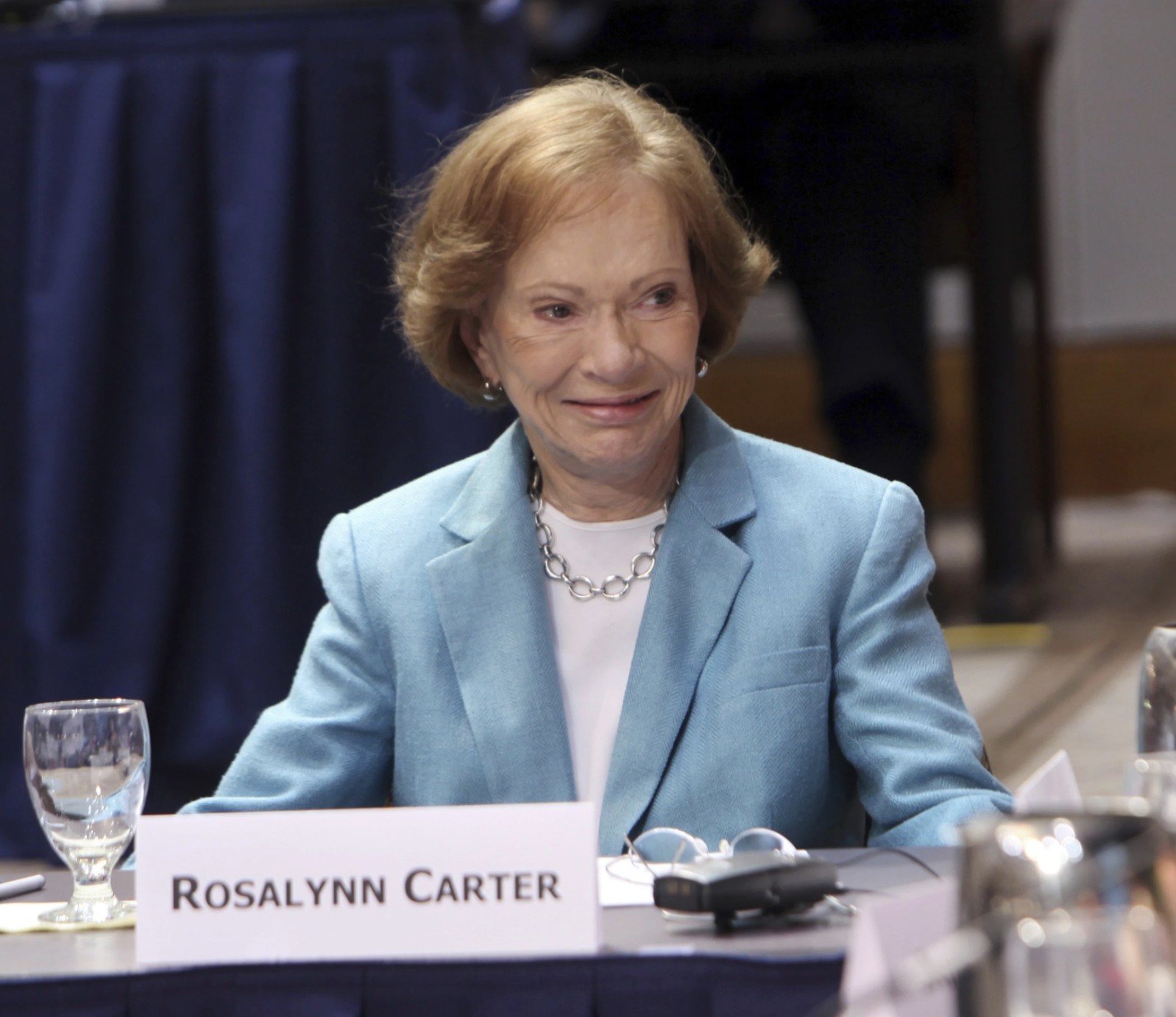AMERICUS – Friends honored the continuing legacy of former First Lady Rosalynn Carter during the first stop by her motorcade Monday at the center that bears her name.
Carter, who died Nov. 19 at age 96, made caregiving – such as the work of caring for unwell family members at home – her unique focus a few years after her husband left office.
“When she started the Rosalynn Carter Institute for Caregiving in 1987, we were barely talking about caregivers, or it was seen as an obligation, and not recognizing that caregivers are people who need our support,” said Jennifer Olsen, an epidemiologist who has led the institute since 2018.
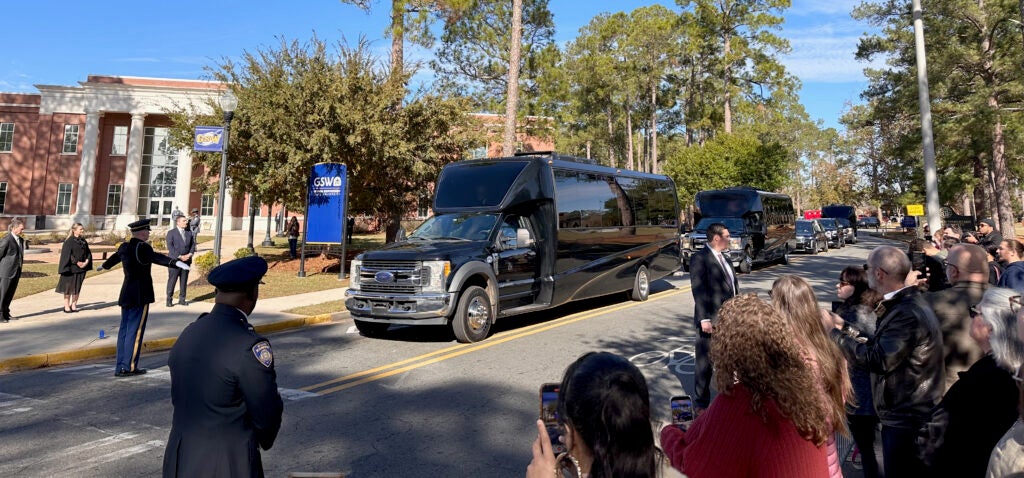
Current and former secret service members assigned to the Carters during their 40-plus years of post-presidential life in nearby Plains escorted the funeral motorcade from an Americus hospital to Georgia Southwestern State University. On the college campus, the institute occupies one of two buildings comprising the Rosalynn Carter Health and Human Sciences Complex.
After Olsen and University President Neal Weaver laid wreaths by a statue of Rosalynn Carter at the complex and greeted the Carters’ four children, the motorcade departed for Atlanta, where Rosalynn Carter lay in repose at the Jimmy Carter Museum.
President Carter, 99, is expected to attend a Tuesday memorial at Glenn Memorial United Methodist Church on the Emory University campus, as are President Joe Biden, First Lady Jill Biden, Vice President Kamala Harris and Second Gentleman Douglas Emoff. The four living former First Ladies – Hillary Clinton, Laura Bush, Michelle Obama and Melania Trump also are expected.
A private funeral is planned Wednesday at Maranatha Baptist Church, the church in Plains where Jimmy Carter taught Sunday school for nearly 40 years.
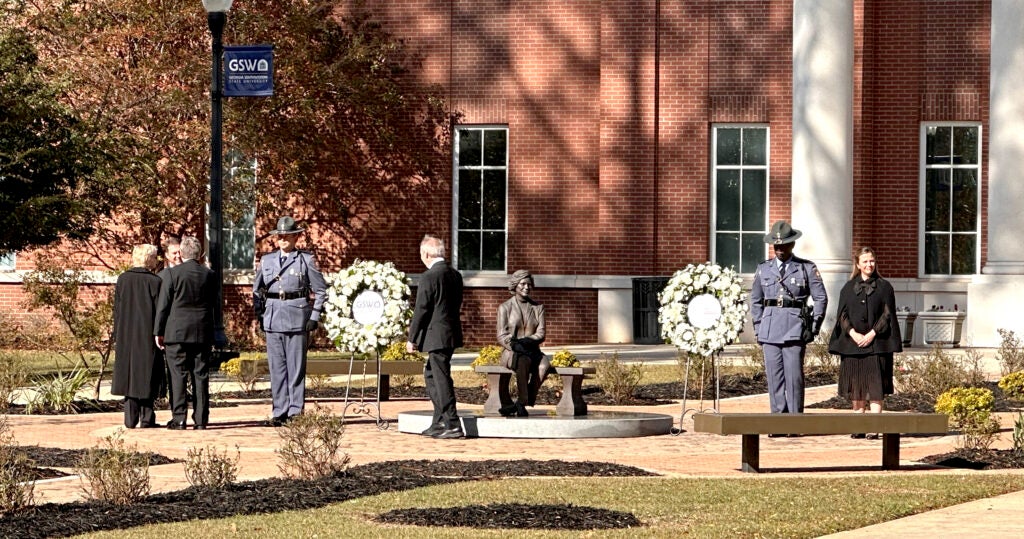
The close-knit Sumter County community is feeling the loss deeply, Olsen said.
“There is sorrow. I live in Plains, so I’m feeling that. On the Georgia Southwestern campus, we have staff and former staff that have worked with and for Mrs. Carter for decades, so are feeling that challenge, and also recognizing the guidance she gave us,” Olsen said.
“She called for a more caring society and all of us, whether we worked with her or didn’t, have a responsibility to make that happen,” she said.
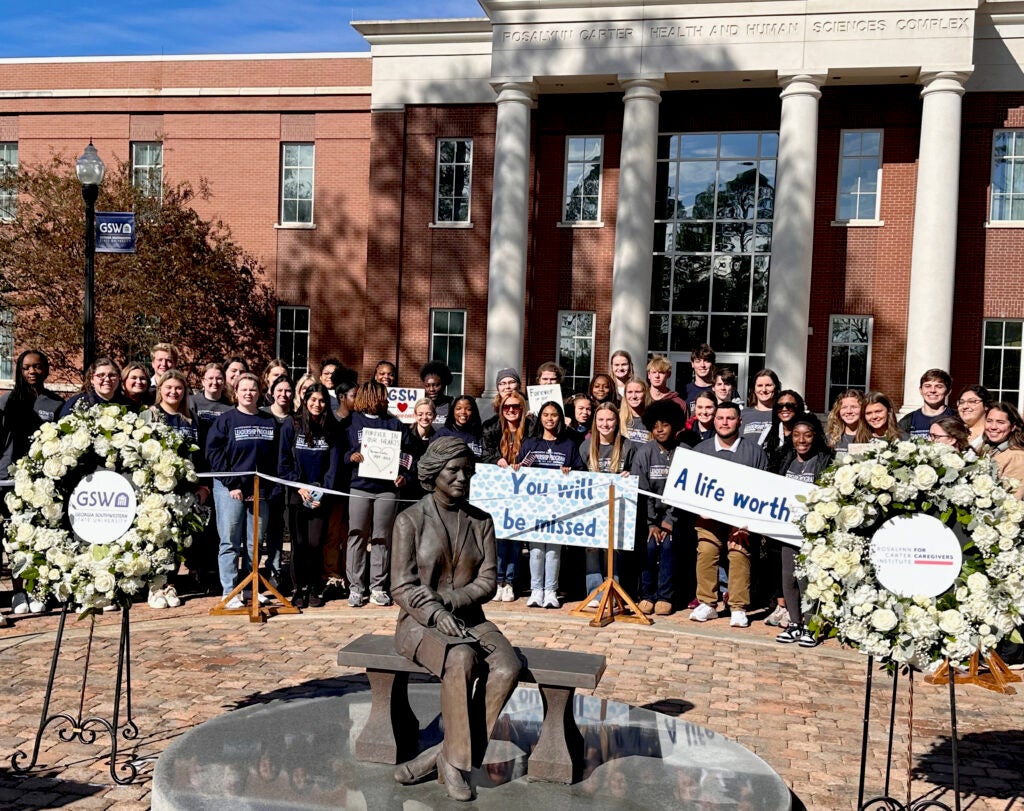
The Carters’ legacy on campus extended beyond the two buildings, to dozens of undergraduate participants in the President Jimmy Carter Leadership Program who attended the ceremony Monday.
Participants take classes on leadership and making change they’ll take with them to the real world, said Alex Espitia, a political science major from Newton.
“In today’s time, a lot of people don’t like change, and being a part of this program, coming in as new leaders, it’s going to be good to have experience with change when we go out into the workforce,” Espitia said.
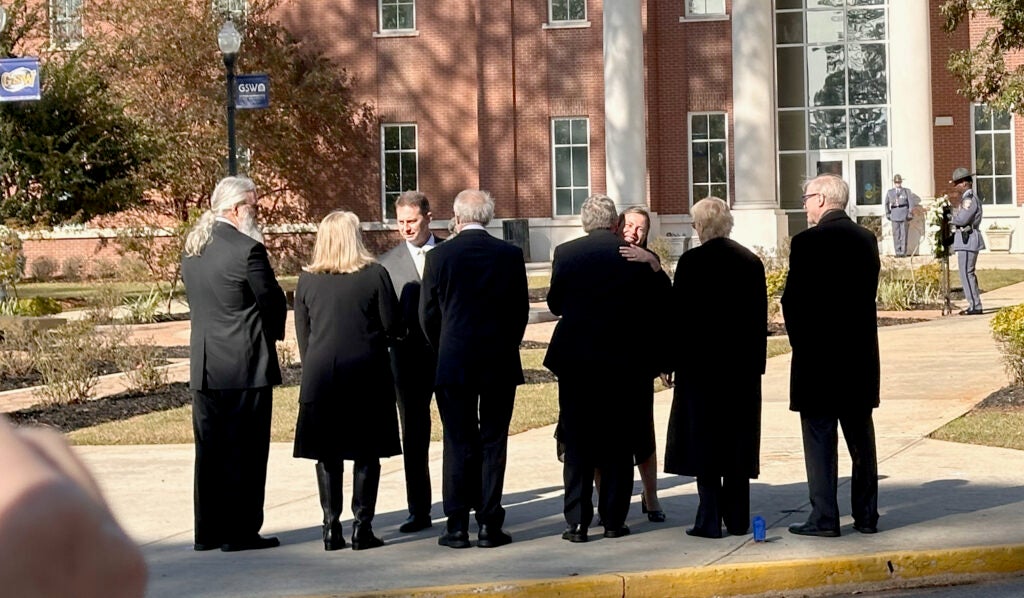
Health science students “take very much pride” in attending classes in the Rosalynn Carter buildings on campus, he said.
Nursing major Ashley Carag of Warner Robins said program participants occasionally interacted with the Carters, and Rosalynn Carter came across as very humble, she said.
“She didn’t boast, or anything like that. You wouldn’t have thought this woman had done so much for the world,” she said.
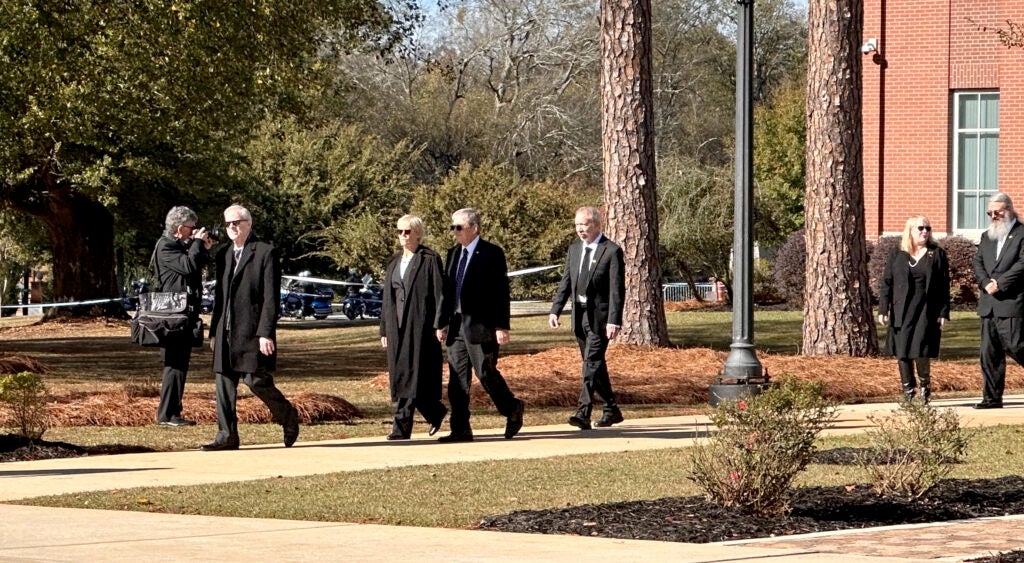
A few hundred gathered on campus for the Monday ceremony, including students, faculty, staff and old friends. Congressman Sanford Bishop, D-Albany, said he’d known the Carters since 1972, when Jimmy Carter was governor of Georgia, and has done Habitat for Humanity builds with the couple in several locations. The homebuilding charity was founded in Sumter County and the Carters were among its earliest champions.
“We’re losing a great icon. She’s a child of Georgia, a child of southwest Georgia, of Sumter County. Over her life she has made so many contributions. She was a great first lady, a great first lady of Georgia and of course, she was a first lady of humanitarian diplomacy around the world,” Bishop said.
“She and President Carter have done so much for so many for so long, and of course they’re just down-home Christian folks,” he said.
The couple’s rise from rural beginnings “to reach such great heights in contributions to humankind” reveals “the possibilities of us all,” he said.
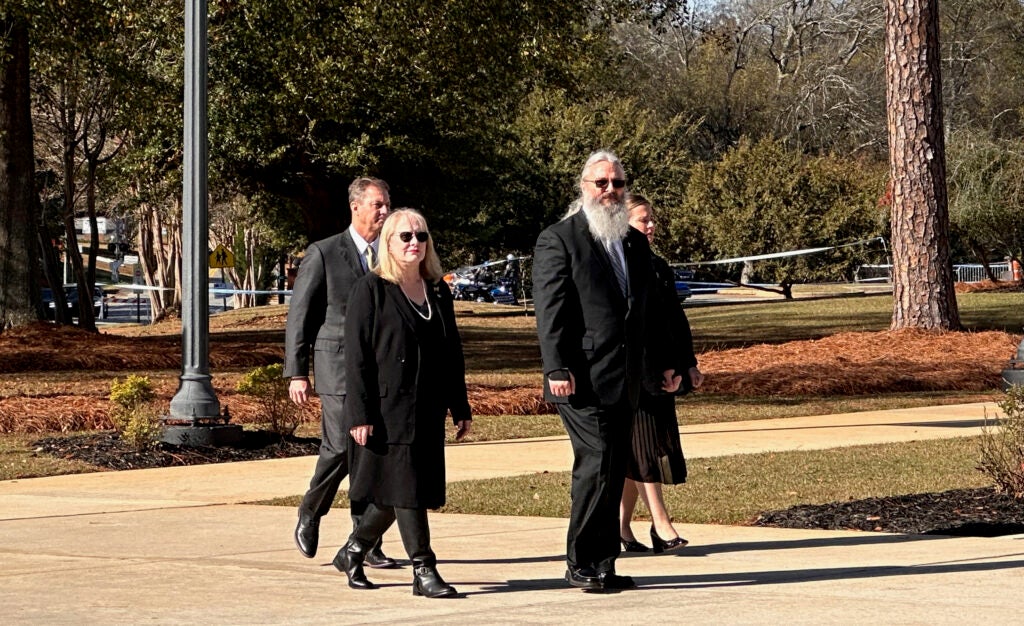
The institute’s work has led to federal funding for caregiver health and its local programs have become models for other localities, Olsen said. These include scholarships for students who serve in caregiving roles, she said.
“A few years ago, Mrs. Carter gave us the assignment to go national, and so we’re continuing that work to this day,” she said.
To that end, the institute is pushing to change the language used for caregivers.
“We talk about caregivers for Alzheimer’s, or cancer, or all those things, but she wouldn’t use another person’s diagnosis to describe a caregiver. She’d say, ‘oh, the caregiver that lives down the street who’s struggling with isolation.’ We’re trying to change that language to recognize that she saw people are the center, not the condition.”

